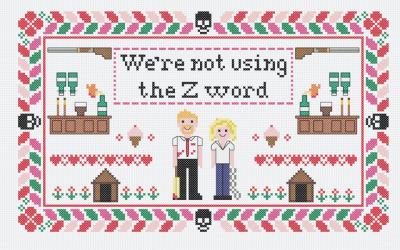Long before I even started to consider serious fiction writing, I’ve been running roleplaying games for years. And in many games, things like magic swords, magic boots, and flying carpets are a pretty big deal. And when you look at many classic “proto-fantasy” stories and the Lord of the Rings, magic items are everywhere. Every halfway decent god or hero had two or three magic items he acquired over his many adventures by stealing them from villains he defeated.
I am not terribly well read in contemporary fantasy books, but it seems to me that magic items are almost absent these days. And in the Sword & Sorcery of Howard and Leiber they appear to be almost nonexistent. (Moorcock being an exception here, with a prominent magic sword being almost a character in its own right.)
Like monsters, I like magic items, as unfashionable they may be right now. But unlike monsters, I don’t really see how I would include magic items in my stories. It’s not that I can’t get magic items to fit into the world, but that with all my characters and villains, I just don’t see any actual use for them. A normal sword, a normal armor is good enough; as is a normal rope with a grappling hook and you can sneak around just fine without boots of sneakiness or an obscuring cloak.
The one point where I really do like “magic items” is when it comes to alchemy. Potions, poisons, smoke bombs and the like are wonderful stuff. These are quite different from regular magic items in two ways: They can be made by craftsmen and may only be borderline magical, and they are also used up once you use them. After that, you need to get new ones if you want to use them again. Which, again, isn’t that particularly difficult as they are relatively easy to make.
But I think it’s not primarily the “mundanity” of potions and bombs that makes them so much more interesting to me, but rather that they actively do something in a noticable way that makes a lot of difference. Take our default example for half of all fantasy discussions: Frodo Baggins. Frodo has a lot of magic items. A magic sword, magic armor, a magic cloak, a magic light, and of course a magic ring. The armors special ability comes into play only once in the entire story, when Frodo gets hit by a troll. But everything Frodo did was “not die”. His sword is a magic sword, but its most interesting ability is not that it’s super durable, super sharp, and super harmful to monsters or anything like that, but that it glows when orcs are nearby. That this magic item of orc detection is shaped like a sword is really just coincidence that doesn’t actually affect its usefulness. The one time Frodo uses his magic stuff actively is his light. And this is not the item that makes him fight harder, survive longer, and hide better, but the one item that he turns on and aims at an enemy. It’s a much more interesting weapon than his sword really.
And that’s what I like about alchemical items. Any time a character uses one, you really see something dramatic happen. In a story, you probably wouldn’t mention a character taking a sip from a magic potion to heal some bruises and small cuts. Healing potions are for when the character would die without it. Smoke bombs, flash powder, liguid fire, and metal eating acid are things that really change the situation a lot. A potion that protects against fire or cold allows a character to survive in otherwise deadly conditions. They don’t just improve the odds, they enable the character to do completely new things he couldn’t normally do.
Those few ideas I have for genuinely enchanted items go into a similar direction. A magic lantern that shows the way to a magically hidden place for example, or a magic gem that glows in the dark. These are also items that you turn on when you need them to do their thing, but don’t keep running the whole time. I think making a magic item being active makes it a lot more interesting than the item just being sligtly better manufactured than mundane gear.


